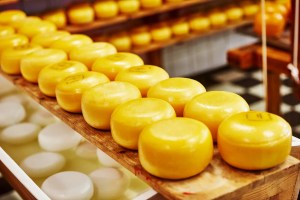Highlights from this month’s Food Fraud Report
Cheese buyback
In the USA, the Department of Agriculture (USDA) is buying $20m worth of cheese in an attempt to improve prices. The cheese will be given to food banks and pantries. read more

Champagne doom
Champagne makers have warned of a looming shortage due to bad weather during the growing season, the worst in 60 years. read more
Dairy prices turn a corner
Falling production and growing demand is said to be responsible for a sudden sharp upturn (12.7%) in global dairy prices. read more
Lead found in turmeric
Routine sampling by New York State (USA) food inspectors found high levels of lead in retail turmeric, leading to a recall of multiple brands in the USA. read more

Allergenic adulteration of cumin
There has been a recall of cumin due to the presence of undeclared peanuts. read more
Wheat markets in flux
Global wheat production volumes have smashed records for the fifth year in a row. read more
